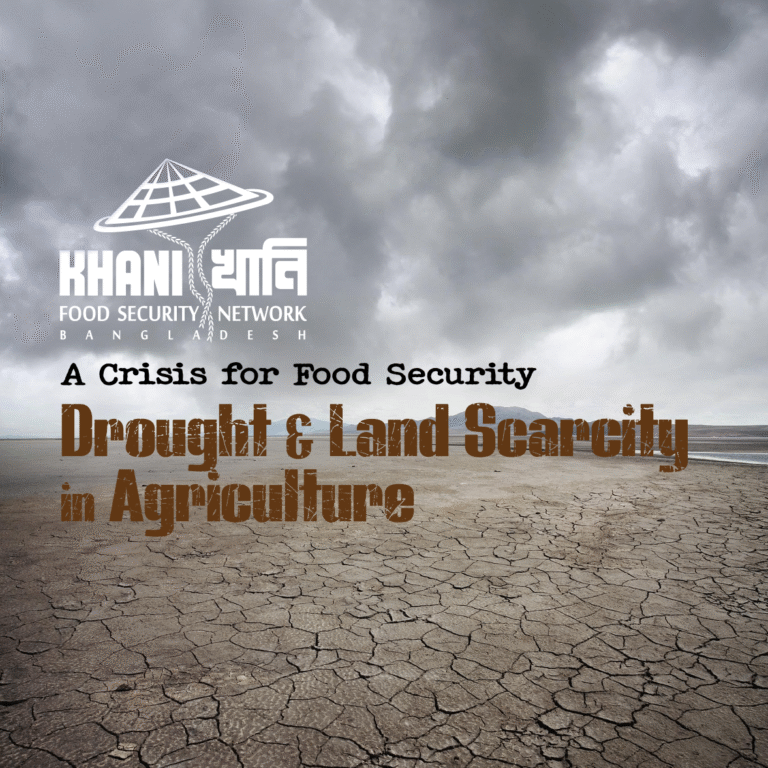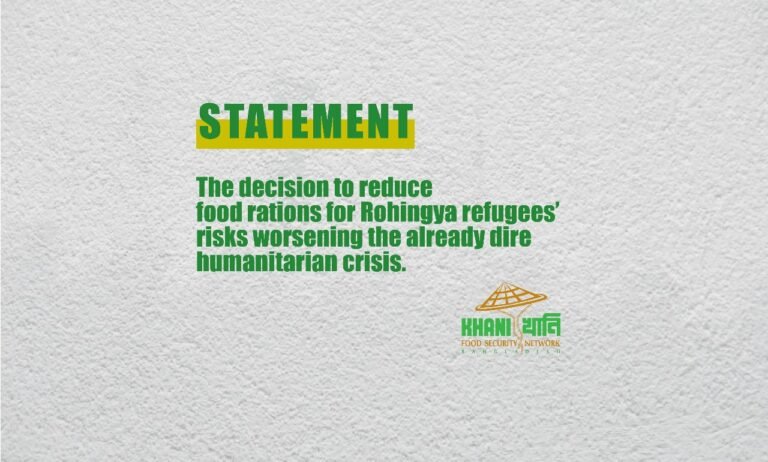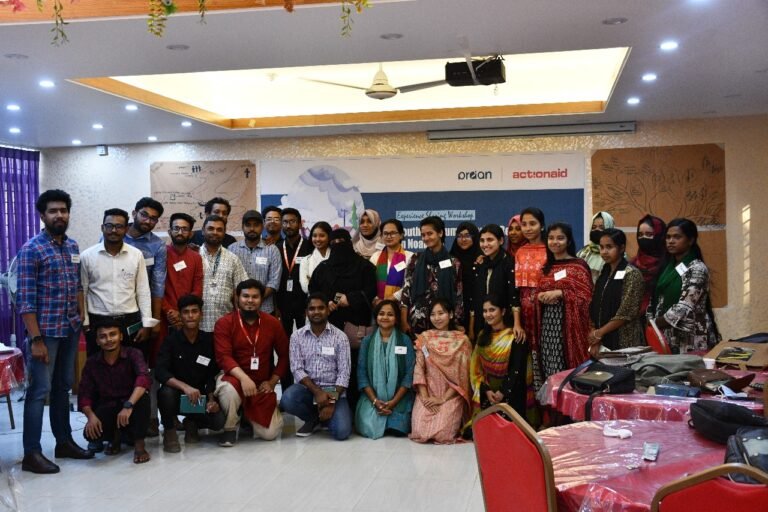 Aiming towards enhancing knowledge of Sexual and Reproductive Health Rights among grassroots women and girls in Subarnochar, a two-day-long Orientation Workshop ‘Female Reproductive Health & Climate Change’ has been organized on August 21-22, 2021 in Nijera Kori, Porishkar Bajar, Char Jublee. With the participation of 31 young girls and women from Subarnochar, this workshop was initiated by Participatory Research Action Network- PRAAN and supported by Asian- Pacific Resource and Research Centre for Women- ARROW.
Aiming towards enhancing knowledge of Sexual and Reproductive Health Rights among grassroots women and girls in Subarnochar, a two-day-long Orientation Workshop ‘Female Reproductive Health & Climate Change’ has been organized on August 21-22, 2021 in Nijera Kori, Porishkar Bajar, Char Jublee. With the participation of 31 young girls and women from Subarnochar, this workshop was initiated by Participatory Research Action Network- PRAAN and supported by Asian- Pacific Resource and Research Centre for Women- ARROW.
In different discussions on SRHR issues among coastal women, the participants expressed their concern about the negative impacts they face because of not having proper SHRH knowledge. For existing social taboos, people here do not talk about this. Women and girls are vulnerable because they are considered like that by society. Their rights become more vulnerable with the existing taboos and restrictions as well as lack of proper knowledge. In any type of planning and disaster response, the rights, equality, and dignity of women must be put first to get the best result out of it. Ensuring climate action works hand in hand with efforts to realize SRHR is a must.
Ayesha Siddiqui Lucky from Nijera Kori, Kanij Fatima Nayan – Health officer, Sagarika sammaj Unnayan Sangstha; Subarno Char, Noakhali conducted the sessions throughout this workshop. Umme Salma, Program Coordinator of PRAAN, and Nurjahan Begum, Campaign Officer of PRAAN jointly moderated this orientation event.
Ayesha Siddiqui Lucky, in her session on breaking the taboos, said this is high time we know our rights. Sexual and Reproductive Health is our right and to advance health, we must advance our rights too. For a very long time, Subarnochar is on the countrywide discussion because of the number of incidents of violence against women that took place here. If we do not know about our rights and do not practice accordingly, this situation is going to be worse as lack of SRHR also initiates different forms of Violence Against Women. Kanij Fatima Nayan added that the conventional myths also contribute a lot to the health hazards the women and girls face here. We must know the facts and try our best to overcome all the superstitious practices. The participants shared the health issues they usually face during menstruation and she guided them with home remedies to minimize the problems.
Several sessions were conducted on Climate Change, Sexual and Reproductive Health Rights, the impact of climate change on sexual and reproductive health, menstruation, taboos, challenges women face during menstruation, risks of unhygienic practices, necessary nutrition supply, basics of the reproductive organ, etc. The facilitator conducted these sessions following different interactive methods like random quizzes on climate change and SRHR, small group discussions, question cards, group presentations, etc. Different Videos on the impact of climate change on SRHR were played during the sessions.
In the feedback session, the participants specially mentioned that the relation between Climate Change and SRHR is completely new to them. They want to know more as they all live in coastal areas, vulnerable to violence against women, disasters, and other social taboos and restrictions. At the end of the orientation workshop, they expressed their willingness to take community actions to enhance knowledge of SRHR among the community girls and women.




